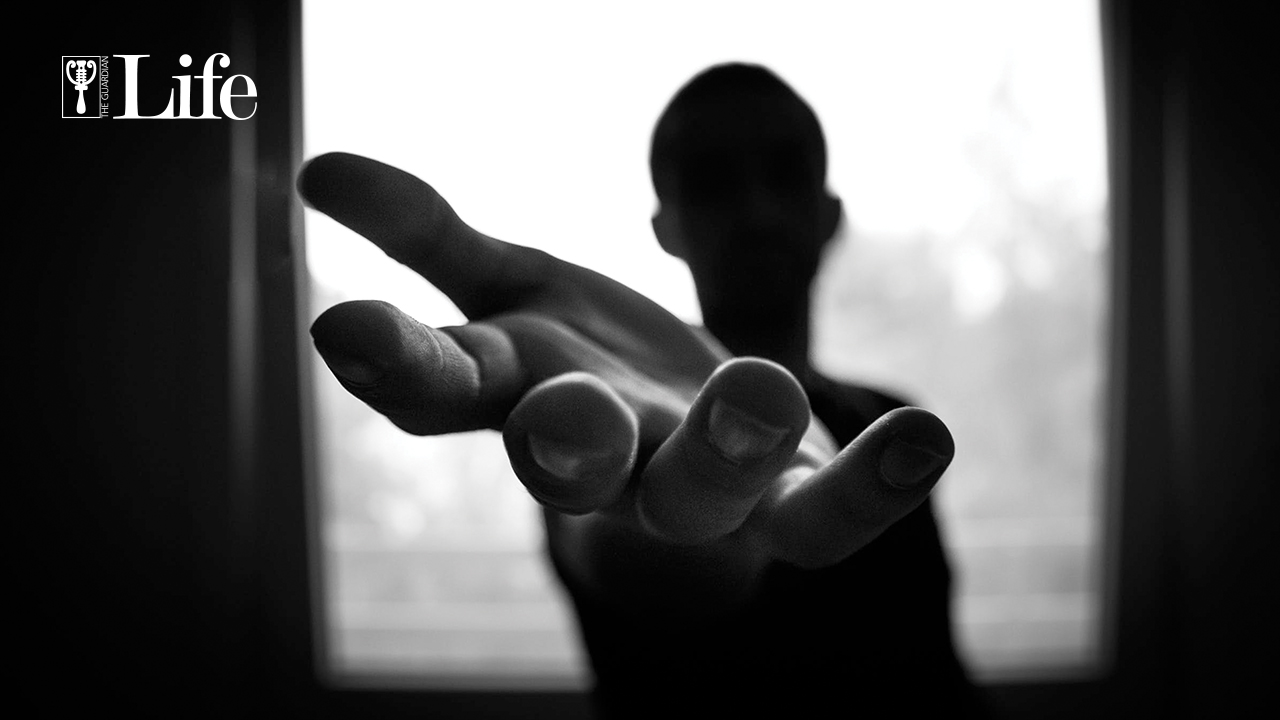What is today known as depression was first reported in ancient Mesopotamia in the second millennium BC. At that time, depression was regarded as a spiritual attack. As a result, anyone under this attack sought help from religious priests.

This belief was later adopted by the Greeks, Romans, Babylonians and the Chinese, all whose foundations were hinged on the metaphysical. The few who sought medical help were treated with dieting, music, baths, travelling and other therapeutic methods.
Previously known as melancholia, the term depression is derived from the Latin verb deprimere meaning “to press down”. Melancholia was, at the time, a broader concept than today’s depression with prominent symptoms exhibited by victims such as dullness, sternness, dejection, fear, anger, delusions and, sometimes, obsessions.
The terms melancholy and melancholia were often used interchangeably until the 19th century when the latter came to refer to a temperament and the former a pathological condition.
In the mid-20th century, researchers postulated that depression was caused by a chemical imbalance in neurotransmitters in the brain.
[vvideo code=”C0UIN61J” autoplay=”yes”]
According to the United States National Institute of Mental Health (NIHM), “Depression (major depressive disorder or clinical depression) is a common but serious mood disorder that causes severe symptoms which can affect how you feel, think and handle daily activities, such as sleeping, eating or working.” To be diagnosed with depression, the symptoms must be present for at least two weeks.
For one to be diagnosed, NIMH states that a person should exhibit one or more of the following symptoms: persistent feelings of sadness or anxiety, pessimism, irritability and restlessness, feelings of guilt and worthlessness, loss of interest in activities and suicide.
In 2014, the World Health Organisation (WHO) ranked depression as the second leading cause of suicide among 15 to 29-year-olds. However, depression is no respecter of age, gender, race or status. The recent suicide rate has taken a toll with news of different individuals and celebrities, including Kate Spade and Avicii, opting for suicide as a way out of depression.

[ad]
The evil that must not be mentioned
On the 19th of March, 2017, Nigeria was hit with the news of the death of a medical doctor, Dr Allwell Orji. Unlike the deaths reported by the media in the past, the doctor’s death was a strange one. Suicide was a societal taboo not to be mentioned nor conceived, yet Dr Orji had done it after several attempts, according to his family and friends.
According to The Guardian, the doctor “who was being driven by his driver in a sports utility vehicle (SUV), was receiving a call when he suddenly asked his driver to park. The driver was quoted saying that the man asked him to stop, came out of the vehicle and jumped into the lagoon.”
Hiding behind a facade of happiness, Dr Orji was, until his death, an unassuming man with a large personality.
Why didn’t Orji seek help when he needed it? Was he a victim of a society that prefers to hush on discourses that have to do with mental, choosing to reinforce the mythical image of a strong African man?
Like the Mesopotamians, the concept of depression has been a cause of debate in Africa and this is largely hinged on the fact that it distorts the perceived reality that an African man is strong enough to brace any raging storm. Issues about mental health have even been termed ‘white man’s sickness’.
It is this silence about the pain that takes precedence when Okonkwo in Chinua Achebe’s Things Fall Apart, commits suicide after series of events.
Adeoye Oyewole, a consultant psychiatrist at Lifecare Consult notes that instead of seeking help from professional psychiatrists, Nigerians are subjected to treatments such as “starvation, sleep deprivation, physical torture and manual labour” by traditional mental health practitioners or spiritual healers.
Orji’s death thus opened the eyes of many to the understanding that the appearance of strength is not strength in itself.
The many sides of depression
According to Robin E. McGee MPH, Nancy J. Thompson PhD, MPH in their 2015 article published in a Centre for Disease Control and Prevention journal, there is a relationship between unemployment, depression and life expectancy. With her large army of unemployed hands, could Nigeria be sitting on a keg of gunpowder?
The Nigerian National Bureau of Statistics (NBS) reveals that the unemployment rate of the third quarter stood at 18 million during the third quarter of 2017. Of this number, the unemployment rate of women between the ages of 18-65 stood at 21.1% while men stood at 16.5%. WHO, in 2017, also revealed that Nigeria is ranked as the leading country with the highest number of heads of households exhibiting depressive symptoms, in Africa with an estimated 22%. For people this age, having a source of income is important.
The Nigerian man is worst hit by societal pressure and emotional abuse to get rich by any possible means at his prime or face the societal shame of being termed a failure. For the woman, a girl between the ages of 23-27 is expected to be married. To the youth, he has to grapple with his senior secondary school certifications and university admission, graduating and attempting to leave the unemployed 18 million Nigerians within the labour force, hence the spread of psychotic depression (which has one of its triggers as poverty).
However, recent deaths of famous persons such as Anthony Bourdain, Kate Spade and DJ Avicii points to the fact that depression is not respectful of success either. Their deaths reveal the similarity of the universal menace: a constant struggle between esteem, personal and societal expectations and the peace that lies within. Apart from Avicii, whose struggles were well documented, Bourdain and Spade put up a facade of happiness until their demises.
The silent killer
Due to recent events, there is the emerging understanding that society dwells more on the effect than the cause.
Since the deaths of Spade, Bourdain and Orji, family and friends have come out on social media to claim that the deceased persons were bubbly before their death.
This begs the question: what defines happiness?
Even in fiction, we shift the blame rather than treat the cause. Obierika in Things Fall Apart tells the white district officer about Okonkwo: “That man was one of greatest men in Umuofia. You drove him to kill himself and now he will be buried like a dog.”

[ad]
As in ancient times, depression was viewed, until recently, as a metaphysical demon that needed to be cast out. As a result, the scare of being termed crazy and being stigmatised ate into the lives of victims.
While some have found the courage to express their state of mind, it has often been treated with lackadaisical approaches. For instance, a statement or a threat to kill oneself is met with a sarcastic remark or a religious ritual to cast the demon out. In places like Lagos, an attempt to commit suicide out of any due is punishable under Section 235 Cap C17, Volume 3 of the Criminal Law of Lagos State, 2015. Yet, the state cannot boast of a comprehensive mental health policy. With a dire number of mental health practitioners, Nigeria can be said to be grappling with its mental health policy.
Perhaps, this could be the reason why people are afraid to seek help.
The obstacles
Organisations like Mental Awareness Nigeria Initiative (MANI) have risen to the charge of addressing mental health in Nigeria. Hauwa Ojeifo, founder of SheWritesWoman Initiative and a Future Awards nominee, during her interview with Guardian Life, notes that as much as people are responding to their call, the fear of societal stigmatisation is still present.
She says, “People will send DMs or emails appreciating our good work and sharing how we’ve helped them or loved ones. They’ll go on to confess that they don’t [like] our Instagram posts or leave comments because they don’t want anyone knowing that they follow us, so as not pass the ‘wrong message.”
For those who have found courage, there is the obstacle of getting a mental health practitioner that can address their state of mind. WHO reports that less than 10% of people who are depressed get diagnosed or treated effectively. Also, WHO’s statistics show that, as at 2006, there were only 42 psychiatrists per 100,000 citizens and 20 psychologists per 100,000 in Nigeria.
This is further worsened by the Mental Health Act which was introduced in 2003, withdrawn from the Senate in 2009 and reintroduced in 2013 but not yet implemented.
Also appalling is the budgetary allocation towards the health sector. Over time, it continues to fall short of the 15% allocation endorsed by the African Union at the Abuja Declaration of 2001.

The way to happiness
Sweeping this illness under the carpet has done nothing other than ravaging the very foundations and output of Nigerians. There is a need to create a society where health policies and regulations are strategically positioned to address any form of mental illness threatening the existence of its people.
Psychologists, psychiatrists and a standard form of procedure are needed more than ever.
The public must also realise that even the most severe case of depression can be treated either by medications, psychotherapy or, in severe cases, electroconvulsive therapy (ECT). But treatment must be preceded by the acknowledgement that there is a problem.

[ad unit=2]








